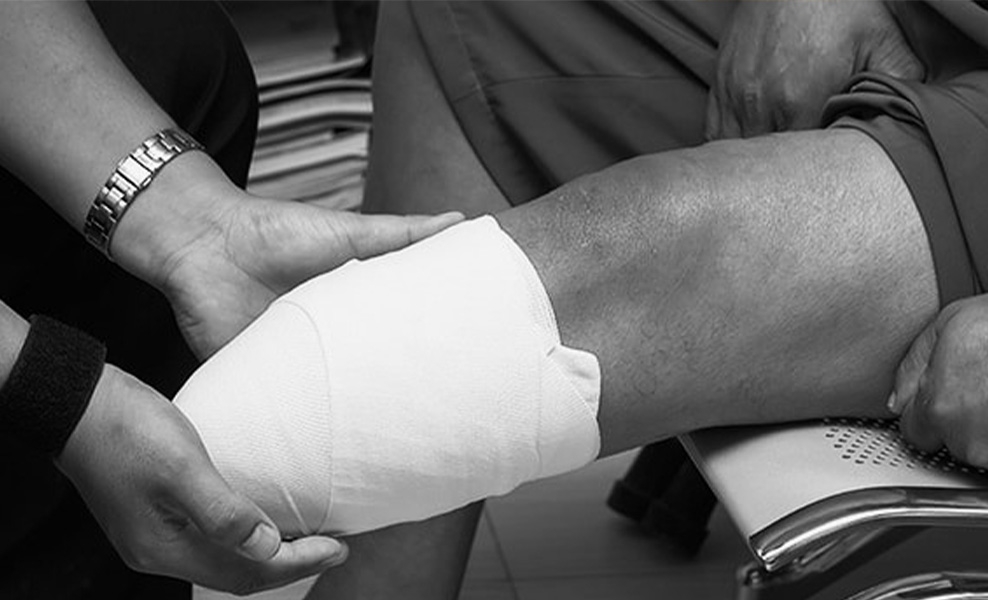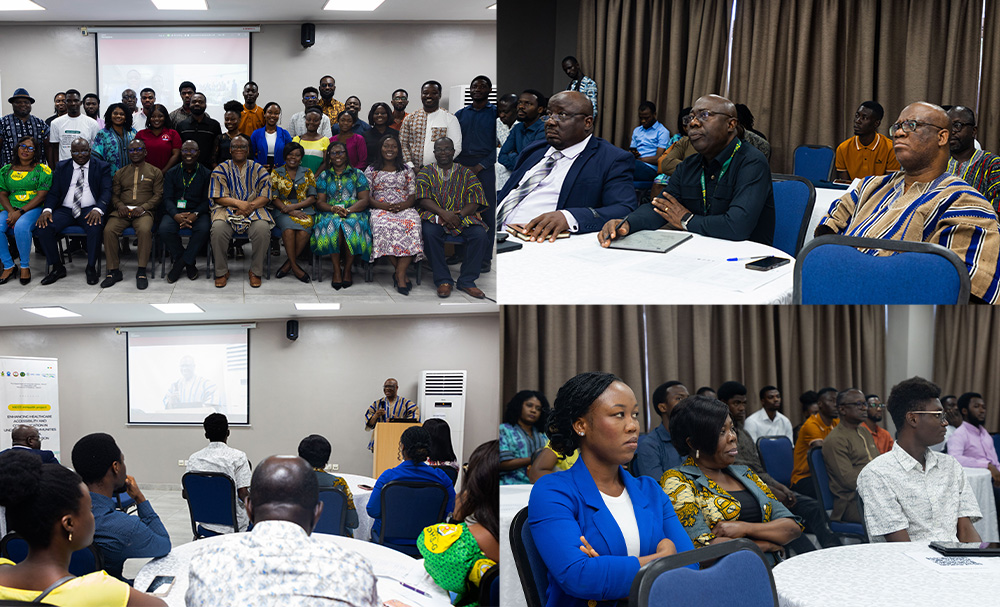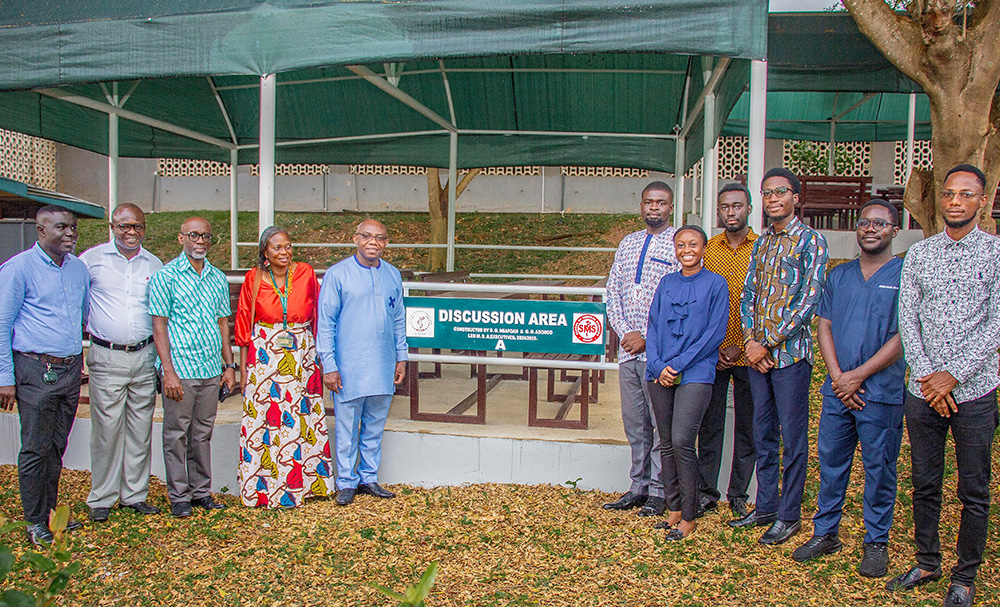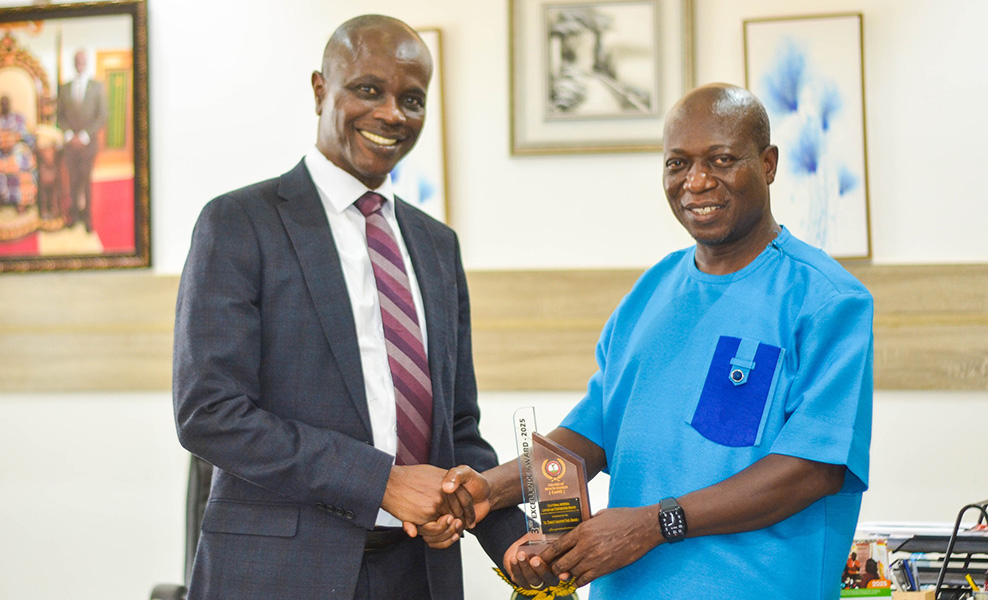A recent study by the KNUST- School of Medical Sciences researchers has unveiled interesting findings regarding the coping mechanisms among amputees and their caregivers in Ghana.
The study which was conducted in 2024 involved over 20 participants comprising 10 amputees and 10 caregivers.
The findings of the research shed light on the psychological and economic challenges faced by amputees and their caregivers.
The study reveals that amputees often experience phantom limb sensations and struggle with job loss, significantly impacting their daily lives.
Meanwhile, caregivers report facing economic hardship and heightened fear as they manage the needs of their loved ones.
In terms of coping strategies, amputees tend to rely on social distancing, social referencing, and seeking support from others to navigate their traumatic experience. On the other hand, caregivers primarily cope through self-encouragement.
Despite the differing approaches, both amputees and caregivers turn to religious coping as a common source of comfort and resilience during their ordeal.
While much attention has been paid to the medical aspects of amputation, there is a broader gap in research regarding the broader impact on the wellbeing of amputees and caregivers, particularly in Ghana.
The impact of the experience of amputation
In Ghana, where medical and psychological support structures may not always be robust, amputees are often left to navigate these challenges without adequate help or intervention.
About six amputees reported experiences where they felt the presence of the primary organ that had been amputated.
A constant feeling that one’s primary organ is still present when evidently the organ is no more is psychologically traumatizing for the amputees.
A 49-year-old unemployed nurse who lost her leg in an accident said, “Sometimes my leg can itch for a while but when I try to scratch it I realize my leg is no more there”.
Another said, “The nurse explained my situation to me so I understand that they had to amputate but I still feel like my leg is there, I can get up suddenly only to realize that my leg is no more”.
Loss of Job
These amputees recounted that following the loss of their limbs, they lost their jobs and had to contemplate changing vocations. For som,e this resulted in a state of confusion on starting to adapt to their new life.
Changing a vocation with complete unpreparedness could escalate into serious psychological distress. While some amputees were in a state of confusion, others disclosed that for them death would have been a better option.
Hawking on the roadside was the source of income for a 35-year-old young man and his family until he had an accident and his leg was amputated. Now he is currently unemployed and is thinking of a new source of livelihood.
According to him, “now I won’t be able to work like I used to do, I sell things by the roadside and sometimes you have to run after the cars passing by just to sell your goods, how do I do that now without my leg?, now I have to change my job so that my wife and kids won’t starve”.
A 42 years old mechanic also said, “After cutting it, things have never remained the same, although I agreed that they should cut my leg but it has affected my job, I had to quit my job, and I’m currently searching for another job that I can easily do”.
Silent Sufferers in the Shadows
While the amputee experiences the direct effects of the loss, caregivers often bear their own emotional and physical burdens. The emotional toll of watching a loved one suffer is compounded by the practical challenges of caregiving.
For many caregivers, the transition from being a family member to becoming a primary caregiver requires a complete shift in responsibilities often without adequate training or support.
One of the most significant stressors reported by caregivers is economic hardship.
In many cases, caregivers have to reduce their working hours or quit their jobs in order to provide the necessary care.
This creates a financial burden and emotional stress that is difficult to manage.
Amputees are shielded from feeling the full impact of the economic hardship because the caregivers view the amputee as vulnerable and in need of proper care or food to recover from his or her ordeal.
According to a caregiver who takes care of her sister, “Things really got difficult, there were days we chewed just roasted corn and groundnuts and we gave her proper food to eat”.
Coping Strategies
Researchers at the Department of Behavioral Sciences, Kwame Nkrumah University of Science and Technology (KNUST), revealed that amputees used social distancing, social reference, and social support as a means of coping with their traumatic ordeal while caregivers just encouraged themselves as a means of dealing with theirs.
The lead researcher Dr. Esther Ohenewa noted, “A common means of dealing with their experiences was religious coping through their belief in the power of an extraordinary being and prayers”
She added, “Seven amputees reported the use of prayers and belief in God as a coping strategy to deal with their experiences, in some cases, it was the community who encouraged the amputees to rely on God”.
Some amputees were still in the dark shells trying to find meaning in their situation when their attention was redirected to their object of worship.
Some revealed how they were encouraged to surrender their problems to God.
“They told me to leave everything to God and pray, that it’s more important to have life and strength, so I listened,” a 30-year-old amputee said.
Similar to amputees, some caregivers depended on their object of worship as well.
According to a caregiver, “God says in every situation we should call on him and he will answer, it gets to a point that I tell God we have nothing to even eat or even give to the sick person but before the next day God is able to provide”.
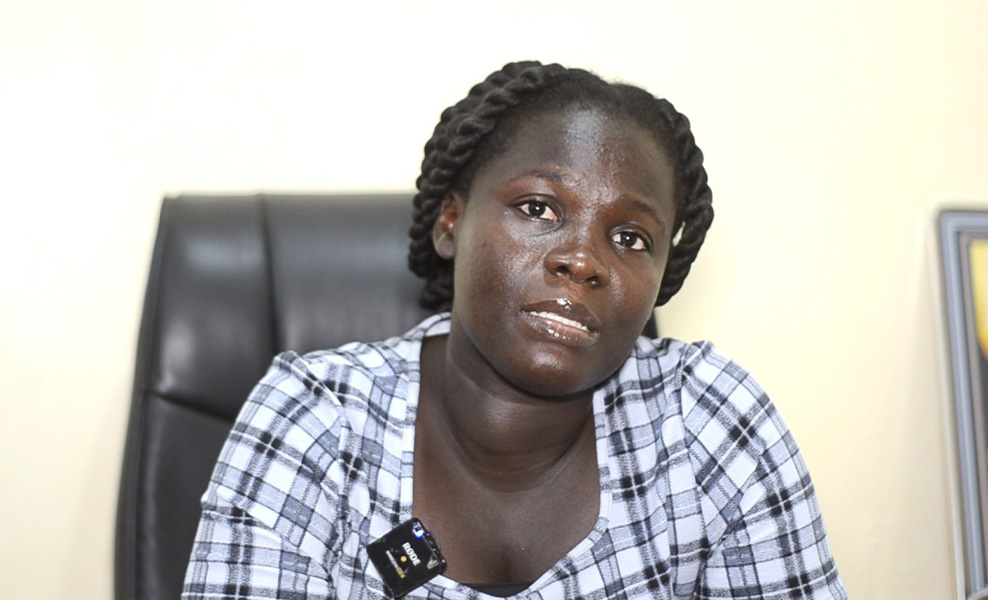
A support system
The impact of amputation extends far beyond the individual who undergoes the procedure.
Experts advice that amputees and caregivers must undergo psycho-education on stress management techniques when amputees and caregivers visit the hospitals for review.
They also added government of Ghana should consider providing financial support to caregivers to ease the burden and policymakers should consider making employment provisions for individuals who undergo amputation to ensure that amputees do not lose their jobs completely or able to secure alternatives that would accommodate their disability.
Authors
Dr. Esther Ohenewa, Prof. Joana Salifu Yendork, Prof. Benjamin Amponsah and Prof. Frances Emily Owusu-Ansah


